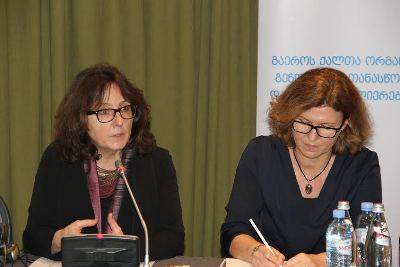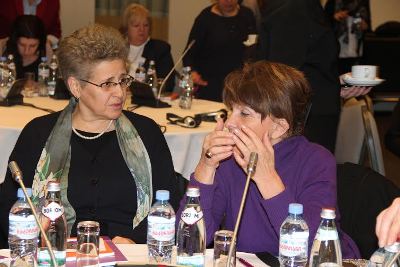Official visit to Georgia of the UN Special Rapporteur on Violence against Women, its Causes and Consequences
Date:
Between 15-19 February 2016, Dr. Dubravka Šimonović, the UN Special Rapporteur on Violence against Women, its Causes and Consequences,visited Georgia.

Dubravka Šimonović, the UN Special Rapporteur on Violence against Women, its Causes and Consequences meeting with civil society organizations; Photo: UN Women
On 16 February 2016, a consultation meeting was held by the Special Rapporteur, with UN Women’s support, for over 50 civil society organizations and development partners. At the meeting, experts from civil society and the Public Defender’s Office underlined the fact that even though the police response to instances of domestic violence had improved, a lot remains to be done to ensure the effective prosecution of violence against women and domestic violence cases; as well as protecting individuals and preventing such violence.

Civil society organizations meeting with the UN Special Rapporteur on Violence against Women, its Causes and Consequences Dubravka Šimonović; Photo: UN Women
It was also stressed that Battered Women’s Syndrome is not recognized by Georgian legislation, resulting in it not being applied at all by lawyers defending victims of violence who have been accused of committing violent crimes against their abusers.
At the consultation meetings, Dr. DubravkaŠimonović thanked civil society representatives for the valuable input they provided and encouraged them to use the Special Rapporteur’s mandate more actively to support their work to end violence against women and girls. She said they could do this not only by applying the recommendations from the official mission report, but also by sending direct communications to her office whenever relevant.
The Special Rapporteur added, “I can say that in our work towards ending violence against women and girls, we are turning a new page, as we already have strong international standards and tools when it comes to legislation and policies, as well as service provision, that should be applied.”